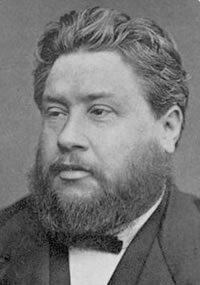Why I'm Not a Calvinist . . . or an Arminian, Part 3
 Read the series so far.
Read the series so far.
The Remonstrance of 1610, by followers of Jacobus Arminius, counters five points of doctrine that were understood to be Calvinistic teachings. The Remonstrance first denies the five Calvinistic tenets, and then positively asserts five articles of doctrine that present a completely different idea of God’s character.
The Remonstrance on Conditional Predestination
God has immutably decreed, from eternity, to save those men who, by the grace of the Holy Spirit, believe in Jesus Christ, and by the same grace persevere in the obedience of faith to the end; and, on the other hand, to condemn the unbelievers and unconverted (John iii. 36).
Election and condemnation are thus conditioned by foreknowledge, and made dependent on the foreseen faith or unbelief of men. (Remonstrance, Article I)
Discussion
Why I'm Not a Calvinist . . . or an Arminian, Part 2
 Read the series so far.
Read the series so far.
Canons of Dort on Limited Atonement
The death of the Son of God is the only and most perfect sacrifice and satisfaction for sin, and is of infinite worth and value, abundantly sufficient to expiate the sins of the whole world (Second Head, Article 3).
For this was the sovereign counsel and most gracious will and purpose of God the Father that the quickening and saving efficacy of the most precious death of His Son should extend to all the elect, for bestowing upon them alone the gift of justifying faith, thereby to bring them infallibly to salvation; that is, it was the will of God that Christ by the blood of the cross, whereby He confirmed the new covenant, should effectually redeem out of every people, tribe, nation, and language, all those, and those only, who were from eternity chosen to salvation and given to Him by the Father; that He should confer upon them faith, which, together with all the other saving gifts of the Holy Spirit, He purchased for them by His death; should purge them from all sin, both original and actual, whether committed before or after believing; and having faithfully preserved them even to the end, should at last bring them, free from every spot and blemish, to the enjoyment of glory in His own presence forever (Second Head, Article 8).
That God the Father has ordained His Son to the death of the cross without a certain and definite decree to save any, so that the necessity, profitableness, and worth of what Christ merited by His death might have existed, and might remain in all its parts complete, perfect, and intact, even if the merited redemption had never in fact been applied to any person (Rejection of Errors 2:1).
Discussion
Why I'm Not a Calvinist . . . or an Arminian, Part 1
I am often asked whether I am a Calvinist or an Arminian. Honestly, it is not a simple question because these are not simply-defined theological categories that can be chosen as one would choose from a menu at a restaurant. I certainly understand the importance of the question, as our answer reveals much about our understanding of God’s character and how He works with humanity. But neither label—Calvinism nor Arminianism—is adequate in explaining the biblical position. In fact, the labels aren’t even adequate in explaining the positions of the men they supposedly represent.
For example, Calvin himself had nothing to do with the formal five points of Calvinism, and in reading Calvin over the years, I am convinced he would not have been a good Calvinist. The five points were really developed through the Synod of Dort (1618-1619) in response to the teachings of followers of Jacobus Arminius. These followers were called Remonstrants, after the document published in 1610 called the Remonstrance, which challenged the Belgic Confession (1562-1566) and some of John Calvin’s and Theodore Beza’s teaching. So when we engage this question, we need to understand that we are dealing with decades (and now centuries) of intense theological controversy over theological perspectives and statements.
Discussion
Calvinism debate in the SBC continues as Al Mohler weighs in
Body
Discussion
Thoughts about “A Statement of the Traditional Southern Baptist Understanding of God’s Plan of Salvation.”
Body
A classical Arminian would never deny that Adam’s sin resulted in the incapacitation of any person’s free will. Classical Arminianism (as I have demonstrated in Arminian Theology: Myths and Realities) strongly affirms the bondage of the will to sin before and apart from prevenient grace’s liberating work. Now, perhaps this is the point of the statement’s mention of “the Holy Spirit’s drawing through the Gospel.” But that, too, can be interpreted in a semi-Pelagian way.
Discussion
Society of Evangelical Arminians: What is Arminianism?
 The following is by Dan Chapa of the Society of Evangelical Arminians (SEA). Since theologically serious alternatives to Calvinism seem to be in short supply these days, SharperIron contacted SEA recently about the possibility of representing classical Arminianism for the SI audience. To learn more about the SEA, see their About Us page.
The following is by Dan Chapa of the Society of Evangelical Arminians (SEA). Since theologically serious alternatives to Calvinism seem to be in short supply these days, SharperIron contacted SEA recently about the possibility of representing classical Arminianism for the SI audience. To learn more about the SEA, see their About Us page.
Arminianism is a summary of our understanding of the Scripture’s teaching on salvation. The name comes from Jacob Arminius, who led 17th century opposition to Calvinism, but the idea stems from Scripture and has deep roots in the early church fathers. Many non-Arminians have mistaken notions about Arminianism—as do many Arminians. This post will define and defend the essential aspects of Arminianism (total depravity, resistible grace, unlimited atonement and conditional election), without critiquing Calvinism.
Total Depravity
Both Calvinists and Arminians believe in total depravity—the idea that fallen man requires God’s grace through the beginning, middle and end of the salvation process. Adam’s fall left us unable, of our own strength, to repent and believe or live a life pleasing to God. But total depravity is not utter depravity; the lost don’t commit the worst sins possible on every occasion. Still without God’s grace, sin impacts every aspect of life and we cannot seek God on our own. Rather, He seeks us and enables us to believe.
Resistible Grace
Arminians may vary on exactly how God’s grace works; but all Arminians hold to the necessity of prevenient grace (grace that comes before conversion that enables us to believe). When God’s grace starts drawing us to conversion, we can choose to say no and reject Christ. God hasn’t predetermined repentance and faith; nothing causes these such that rejection is impossible and we cannot choose otherwise. But believing does not earn or cause salvation; God chooses to have mercy on believers.
Discussion
Spurgeon and the Battle for Gospel Preaching, Part 1
First appeared at SharperIron Oct. 15, 2007 with the permission of Brookside Baptist Church.
The true minister of Christ feels impelled to preach the whole truth, because it and it alone can meet the wants of man. What evils has this world seen through a distorted, mangled, man-moulded gospel. What mischiefs have been done to the souls of men by men who have preached only one part and not all the counsel of God!
—C.H. Spurgeon, Metropolitan Tabernacle, 1859
Hyper-Calvinsim is all house and no door; Arminianism is all door and no house.
—John Duncan
Introduction
On April 28, 1854, a 19-year-old boy-preacher assumed the pastorate of New Park Street Chapel in London, England. He remained in this ministry for more than four decades. Throughout the course of his ministry, God did mighty works, and unusual advances were made for the gospel of Jesus Christ. During his ministry, Charles Spurgeon saw more than 14,000 new members added to New Park Street Chapel. He enjoyed the blessing and provision of the Lord through several expansions and building programs. He founded an orphanage and a college for training ministers. He preached to thousands each week. On one occasion, he preached to more than 30,000 people at one time. His was a household name, and even hansom (cab) drivers instinctively knew to take people over the river to “Charlie’s.” Two thousand two hundred and forty-one of his sermons were in print at the time of his death. Today, more than 300 million copies of his sermons and books are in print, making him one of the most prolific authors in the English-speaking world.
The preceding details of Spurgeon’s ministry are well known to most preachers who have had any measure of exposure to Church history. His rich spiritual heritage has been chronicled in scores of biographies and other literature related to his life. One aspect of his ministry, however, has received little or no attention until recently—the prolonged doctrinal controversy surrounding his practice of openly inviting all men to respond to the invitation of the gospel. The details and ramifications of this controversy can be found in a fairly recent book by Iain Murray entitled Spurgeon v. Hyper-Calvinism: The Battle for Gospel Preaching. Published in 1995 by Banner of Truth, this work provides an understanding of the nature, extent, and doctrinal issues surrounding the controversy.
Discussion
Wanted: More Arminians
 It has become a bit routine:
It has become a bit routine:
- Email arrives from someone assuming I am (or everybody at SharperIron is) a Calvinist.
- Email poses question believed to be incriminating of Calvinists or unanswerable by them.
- Response from me offers biblical answer that is not especially calvinistic.
- Questioner ignores most of the particulars, broadly condemns “Calvinism.”
- Discussion becomes repetitive, overly heated or both, ends.
A recent example appears below, with details removed to avoid identifying the sender. I’m including the exchange because, this time around, a reality hit home to me that hadn’t before: apparently, many fundamentalists think that anti-Calvinism is a complete doctrine of salvation.
But anti-Calvinism is, at best, a thoughtful rejection of one particular doctrine of salvation. More commonly, it’s nothing more than a feeling of hostility toward doctrines only partially understood. As a result, many anti-Calvinists have no coherent doctrine of salvation at all. They have rejected lasagna from the menu but have walked away without ordering any alternative.
Discussion
The Electrum

Those who are beginning to study the debate between Calvinism and Arminianism tend to entertain two related but mistaken assumptions. The first is that the debate involves only two primary positions. The second is that the more extremely one implements either position, the more distant one must be from the other position. The first of these assumptions is simply untrue. The second is true, but only to a point.
Like visible light, positions in the debate between Calvinism and Arminianism form a continuous spectrum. Every Christian who has an opinion on the issues can be located somewhere along that spectrum. The issues that define the positions, however, are not necessarily those that one might expect.
Participants in this debate will be found arguing about divine sovereignty versus human freedom, about the ordo salutis, about the extent of human depravity, about the role of prevenient grace, and about whether election is unconditional, conditional, or corporate. To be sure, all of these questions are important, but they eventually lead to one critical problem. That problem is the definition of divine foreknowledge.
Divine foreknowledge is the hinge upon which all the other debates turn. One’s definition of foreknowledge will determine whether one ends on the Arminian or Calvinistic side of the debate—and everyone who expresses an opinion is on one side or the other.
Arminians see God’s foreknowledge as His foresight. God looks ahead through the corridors of time and sees what free people will choose. For Arminians, divine foreknowledge is essentially reactive.
For their part, Calvinists see God’s foreknowledge as causative. God’s foreknowledge does not passively observe the future, but rather shapes it. God’s foreknowledge makes things happen. According to Calvinists, foreknowledge is not so much God’s foresight as it is His forethought.


Discussion